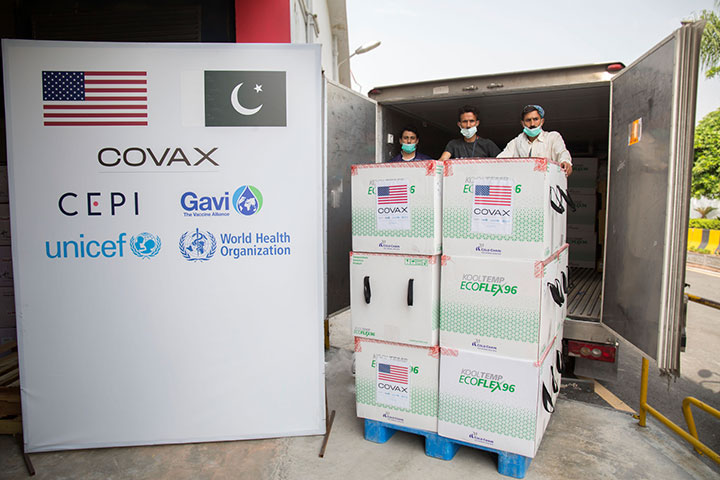By: Kainat Saif
The nexus between peace and interfaith harmony is powerful, Former compliments the latter. To define peace, Peace is a stress-free situation of calmness and a secure environment that appears when there’s no fighting or war, everything coexisting in perfect consonance and freedom. Interfaith harmony means bringing peace in order to promote tranquility among people by positivity. Hence, to ensure smooth flow of peace in any state in general and Pakistani society in particular interfaith harmony is an important ingredient.
Interfaith harmony is the supreme key to establish national and political stability.
In the past few decades, the situation of peace in Pakistan has remained disturbed. As a matter of fact, the archive of sectarian conflict in Pakistan is as ancient as the existence of this state. Sectarian violence in Pakistan means attacks and counter-attacks against people and places driven by antagonism toward the target’s sect, mainly a religious extremist group. Targets in Pakistan include the Shia, Sunnis, Barelvis, Ahmadis, Sufis, and minor groups of Deobandis. The Guardian recently reported that Shias in Pakistan are living in horror as sectarian violence once again is on a spike. The Sunni majority is manipulating blasphemy laws to target those they consider, according to their tailored interpretation, ‘heretics’. Another example is of Asiya Bibi, a Pakistani Christian woman, convicted of blasphemy was sentenced to death through hanging. In October 2018, the Apex Court i.e Supreme court of Pakistan acquitted her based on insufficient evidence citing “material contradictions and inconsistent statements of the witnesses” which “cast a shadow of doubt on the prosecution’s version of facts”. TLP (Tehreek-e-Labbaik Pakistan) contempt the orders of the court as thousands of Islamist protesters were in the streets of Pakistan’s major cities, blocking roads and damaging infrastructure. Another example is of Salman Taseer former governor of Punjab.
He was assassinated by his own bodyguard because of the governor’s opposition to Pakistan’s blasphemy law and his support to a Christian woman sentenced to death for allegedly committing blasphemy. More often than not people convicted of blasphemy were shot dead during the trial by any random person, the reason being that the killer or murderer then is orchestrated as a hero by the public for saving religion. Such a deep-rooted sense of intolerance is a product of misinterpretation of religion.
Peace is a precondition for development, peace is a prerequisite for prosperity, Peace is a necessity for rule of law and peace is essential for social cohesion. The delicate dance of extremism on the rhythmic music of violence is setting Pakistan on unstable and shaky ground. Hence, the name of Pakistan in FATF grey list. In the name of free speech; hate speech is common, In the name of self defense; violation of rights if minorities is a custom, and If we talk about forced conversion and marriages; it is a frequent habitual practice. Everyone here lives on the principle of carte blanche not realizing rights requires responsibilities.
The lackadaisical collective common sense, religious misinterpretation, prejudiced and unjust election mechanism for minorities, misconception regarding Jihad, the partial and biased religious discourse, the migrations of the non-Muslims from Pakistan specifically Hindus, insecurity of the holy places/sites of minorities, discriminatory distribution of socio-economic resources, the absence of the non-Muslim literature in the curriculum, misuse of Blasphemy laws, hate speech, Lack of tolerance, yellow journalism are some remarkable ultimatums to Inter-Faith Harmony in Pakistan.
The reason to explain challenges here is twofold: Problem well defined is already partially solved and for negative epistemology. Nassim Taleb in his book Antifragile introduced the concept of antifragility – things gained from disorder. This suggests any system increases its capacity to thrive as a result of stressors, volatility, Shocks, mistakes, faults, noise, failures, or attacks. All these factors contribute to the system to advance itself in order to cater to situations more efficiently. We have our lessons learned from the past and It is time to think about what’s next because if not now then when?
Now is the high time to step out of religious fanaticism and ensure social unity. Interfaith harmony is the supreme key to establish national and political stability. To live in peaceful and harmonious surroundings is an important idea in a multi-religion society. Even though Pakistan is not a secular state but its founder Quaid-e-Azam strongly supported coexistence regardless of religion, caste, or creed, and the Constitution of Pakistan 1973 doesn’t hold up any discrimination. For insistence The Constitution of Pakistan 1973, in article 25 (1), advocates for equality in the eyes of law. It suggests that “all citizens are equal before the law and are entitled to equal protection of the law.” Article 5 recommends the safety of minorities and provides that “adequate provision shall be made for the minorities to freely profess and practice their religions and develop their cultures,” and article 33 declares that it is the state’s responsibility to discourage parochial, racial, tribal, sectarian, and provincial prejudices among citizens. This manifests a commitment to the rights and interests of the minorities so as to promote interfaith harmony. Strengthening our legal framework through isomorphic mimicry can help us to create and promote fraternity and harmony among various communities to ensure peace and prosperity in society.
To fill the gap of trust deficit, inclusivity is important. Why Nations Fail is an international bestseller that explains in detail the importance of inclusiveness so as to become a progressive state. Diversity is the beauty of this world and through inclusion, we accept it to celebrate different religions, cultures, ethnicities, etc. Nevertheless, the need to promote better understanding among various religious communities and sects at every level in order to promote tolerance for the greater public good, respect and mutual understanding in the society can’t be denied. Within diversity remains our strength and the beautification of society. Also together we make a difference. However, It is important to know yourself and accept or understand others plus the differences. Pakistan can be made prosperous only through brotherhood, unity, and a sense of belonging. Having said that, all religions and sects should stand hand in hand to counter the nefarious designs of the rivals. As a multi-faith state, Pakistan is not in a position to afford any sort of discrimination, negligence misbalance, and ignorant attitudes towards religious minorities. Consequently, Inclusion is the antidote to cure pandemics of extremism and violence.
In order to make Pakistan a better place to live in through interfaith harmony few suggestions are here:
The curriculum remains the main thing to shape innocent minds. It is necessary to teach your future generation unbiased education and shall remove all the irrelevant content which promotes or incites violence.
Different schools abroad, to promote tolerance, actively instruct their students to practice rituals of different faiths as proper assignments. This can be replicated here in Pakistan too. This exercise can play a game-changer to inculcate a culture of interfaith harmony.
Life skills-based education coupled with different training such as conflict resolution and dispute management at higher level studies is essential for youth to shape their mind in a better way.
Inclusive policies by the government can create ample opportunities for all are the foremost way to encourage religious pluralism.
Implementation of existing laws on merits and not vested interests is a huge challenge. Rule of law is the only solution.
Celebrations of intercultural and interreligious festive events can save you big time from living in our own world of misunderstanding as it will give you the opportunity to interact and know the facts. So, getting out of myths is the need of time.
A large sector of society is influenced by dramas/movies. The content, thus, needs to promote inclusion and exclude oppression against minorities, let it be religious or ethenic.
Media is yet another important stakeholder. In Spite of partisan reporting and spreading hate it can play a positive role through responsible journalism.
Proper check and balance on social media is crucial so as to negate social media war. Ban and restriction on inciteful material can also be considered.
No one except scholars and the state shall put “FATWA” on others.
Different round table discussions, seminars, symposiums on diversity, inclusion, and interfaith harmony can play a vital role to build a narrative of peace and give people a positive perspective.
Awareness can remove a lot of frustration from society resulting in more tolerance, peaceful coexistence, and diversity.
Finally, let’s pledge to stay sane in a world full of chaos. Let’s play our part to develop a peaceful society by the notion of live and let live famously translated as “JEO OR JENAY DOU”.
The writer is 3rd prize winner of The Dayspring’s Peace & Interfaith Harmony Writing Contest. She can be reached at [email protected]



